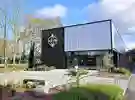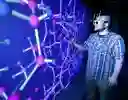Faculty of Science and Engineering
Ever since the University was founded, we’ve been making the world a better place. Our Faculty leads in teaching and tackling today’s and tomorrow's challenges. From advancing renewable energy and harnessing AI to protecting biodiversity and improving human health.

Welcome from the Dean
Our world is facing ever accelerating technological and environmental changes. Colleagues throughout our Faculty are answering the fundamental questions and major challenges facing society to help us all live better.
From the heart of the UK’s ‘Energy Estuary’ and the ‘Yorkshire Nature Triangle’, our work is helping to drive a sustainable energy transition and to protect diverse and interconnected environments.
We’re passionate about sharing our expertise. From engagement and citizen science activities to building a love of science through innovative teaching programmes, to partnership working to solve real-world problems, we’re helping to create a sustainable and inclusive future.
Professor Mark Anderson
Interim Dean of Faculty of Science and Engineering
Schools and disciplines
Together, we’re helping to train the next generation of science and engineering experts.
We combine cutting-edge research, industry links and up-to-date facilities to deliver industry-accredited undergraduate and postgraduate degree programmes.
Research
Researchers across the Faculty of Science and Engineering are at the forefront of addressing challenges presented by changes across the world, including tackling environmental resilience and energy security, and helping to protect those living with the threat of flooding and coastal erosion.
Forging close links with industry and business, our research community is tackling fundamental scientific questions and engineering innovative solutions to help shape a better, more connected future. Our research spans disciplines from marine science and geography, health and biomedicine, and AI and emerging technology.
Facilities

